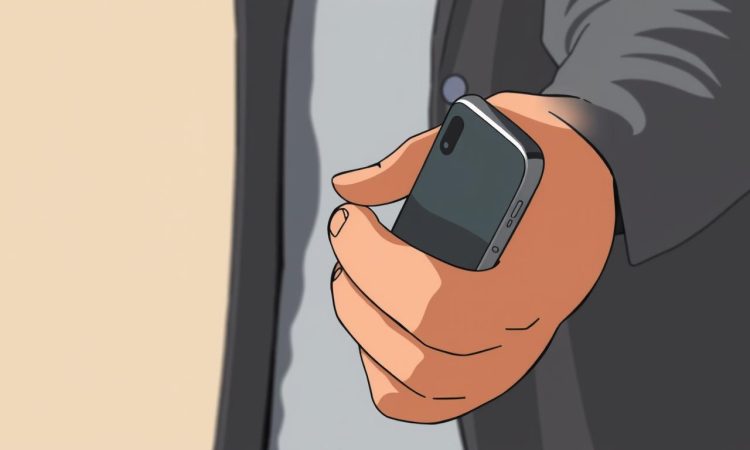
Have you ever wondered why your partner suddenly becomes protective of their phone? It’s a question many of us have asked ourselves at some point. Phones are personal devices, but certain behaviors can raise questions about privacy and trust in a relationship.
From changing passwords to keeping the screen face down, these actions might seem small but can hint at bigger issues. Experts like Kelli Miller, LCSW, MSW, suggest that phone behavior often reflects deeper relationship dynamics. It’s not just about the device—it’s about what it might represent.
In this article, we’ll explore ten behaviors that could indicate secrecy. Whether it’s frequent app usage or taking the phone to the bathroom, these habits might be worth a closer look. Let’s dive in and understand what these actions could mean for your relationship.
On this Page:
- 1 Understanding the Context of Phone Secrecy
- 2 Identifying Signs Someone is Hiding Something on Their Phone
- 3 Hidden Phone Apps and Disguised Icons
- 4 Unusual Behaviors and Red Flag Gestures
- 5 Insights from Relationship Experts
- 6 Interpreting Digital Communication Patterns
- 7 Starting a Constructive Conversation About Privacy
- 8 Conclusion
Understanding the Context of Phone Secrecy
Why does your partner seem so guarded about their phone lately? It’s a question that many couples face as smartphones become central to our daily lives. While privacy is a natural and healthy part of any relationship, certain behaviors can blur the line between privacy and secrecy.
The Importance of Trust in Relationships
Trust is the foundation of any strong relationship. Experts at Psychology Today emphasize that open communication and mutual respect are key to maintaining this trust. For example, 67% of individuals believe that sharing passwords with a partner is a sign of a healthy relationship. This openness fosters transparency and reduces the need for secrecy.
However, when one person starts hiding their phone or changing passwords without explanation, it can create suspicion. These actions might seem small, but they can erode trust over time. It’s important to recognize the difference between healthy privacy and behaviors that raise red flags.
When Privacy Crosses into Suspicion
Privacy becomes problematic when it leads to secretive actions. For instance, checking call logs or deleting messages can indicate a lack of transparency. According to relationship experts, 75% of therapists suggest that hiding a phone or keeping it face down can signal deeper issues in a relationship.
Setting boundaries is crucial. Couples can collaboratively decide what level of privacy works for them while preserving individuality. This approach ensures that both partners feel respected and secure, reducing the likelihood of misunderstandings.
Identifying Signs Someone is Hiding Something on Their Phone
Have you noticed unusual phone habits in your partner? Sometimes, small changes in behavior can hint at larger issues. Overt actions like locking the device frequently or closing apps abruptly can be red flags. These behaviors might seem minor, but they can erode trust over time.
One common sign is when a person deletes messages or call logs immediately. This behavior suggests they don’t want others to see their activity. According to Psych Central, such actions often indicate a lack of transparency in a relationship.
Another red flag is when your partner becomes evasive about their phone. For example, they might quickly switch screens or avoid letting you see what they’re doing. Psychology Today notes that these behaviors can signal deeper issues, like secrecy or dishonesty.
It’s important to approach these observations with care. Instead of jumping to conclusions, consider having an open conversation. Understanding the reason behind these actions can help address the root cause and strengthen your relationship.
Hidden Phone Apps and Disguised Icons
Ever noticed an app on your partner’s device that doesn’t seem to fit? Hidden apps and disguised icons are becoming a common way to keep certain activities private. These tools, like vault apps or secret messaging platforms, are designed to blend in with everyday apps, making them hard to spot.
Vault and Secret Messaging Apps
Vault apps are designed to store photos, videos, or messages securely, often behind a password. Secret messaging apps, on the other hand, allow users to communicate discreetly. These apps can be a red flag if they’re used without transparency in a relationship.
For example, a person might use a vault app to hide photos or videos they don’t want others to see. Similarly, secret messaging apps can obscure communication logs, making it difficult to track activity. Experts suggest that sudden changes in app usage, like downloading these tools, can indicate safeguarding of information.
Generic Names and Customized Icons
Another tactic is renaming apps or using generic icons to make them appear harmless. A calculator app, for instance, might actually be a vault for sensitive data. Customized icons can also disguise apps, making them blend into the device’s interface.
Studies show that around 60% of users have encountered apps they didn’t install or recognize. This highlights the importance of regularly checking your device for unfamiliar apps. Open communication with your partner about app usage can help maintain trust and privacy in your relationship.
Unusual Behaviors and Red Flag Gestures
Does your partner seem unusually attached to their phone lately? This behavior can be a red flag, especially if they’re keeping it close yet hidden from view. It’s natural to value privacy, but when actions become secretive, it can strain trust in a relationship.
Keeping the Phone Close and Out of Sight
One common behavior is always having the phone nearby but ensuring it’s never visible. For example, they might place it face down or in their pocket when you’re around. This could indicate they’re guarding their activity, whether it’s a message, call, or app usage.
Another sign is evasiveness when someone enters the room. They might quickly switch screens or lock the device. These actions can signal deeper issues, like secrecy or dishonesty, which can erode trust over time.
Such behaviors often lead to trust issues in a couple. If your partner is overly protective of their phone, it’s worth addressing. Open communication can help clarify their actions and strengthen your relationship.
Here are some tips to consider:
- Have an honest conversation about phone usage and boundaries.
- Discuss why certain actions feel secretive and how they impact trust.
- Work together to establish mutual respect and transparency.
Remember, unusual phone behaviors don’t always mean something is wrong. However, addressing them early can prevent misunderstandings and build a stronger connection.
Insights from Relationship Experts
What do relationship experts say about phone secrecy in partnerships? Professionals like Kelli Miller, LCSW, MSW, and Jonathan Van Viegen emphasize that phone behaviors often reflect deeper trust issues. While privacy is healthy, secrecy can erode the foundation of a relationship.
Perspectives from Couples’ Therapists
Couples’ therapists often see phone secrecy as a red flag in sessions. For instance, locking a device or deleting messages can signal a lack of transparency. Experts suggest that open dialogue is key to addressing these behaviors and rebuilding trust.
According to Jonathan Van Viegen, who has worked with over 1,000 couples, secretive phone activity often stems from unresolved issues. He recommends discussing boundaries early to prevent misunderstandings and foster mutual respect.
Real-World Reactions and Social Debates
Social media platforms like Instagram and Psychology Today have sparked debates about phone privacy. Many users share stories of finding hidden apps or noticing unusual phone behaviors in their partners. These discussions highlight the fine line between privacy and secrecy.
Studies show that 60% of individuals believe snooping is never acceptable. However, 48% of women and 31% of men think it’s justified in certain situations. These conflicting views underscore the need for clear communication in relationships.
Here are some expert-recommended steps to address phone secrecy:
- Have an honest conversation about phone usage and boundaries.
- Discuss why certain actions feel secretive and how they impact trust.
- Work together to establish mutual respect and transparency.
By addressing these issues openly, couples can strengthen their connection and build a healthier relationship.
Interpreting Digital Communication Patterns
Have you ever noticed inconsistencies in your partner’s phone activity? Digital communication leaves a trail, and changes in patterns can reveal a lot. Altered call logs or missing text histories are significant indicators that something might be off.
Digital footprints, like call logs or text histories, are often the first place to look. If these records are altered or deleted, it could be a red flag. Apps with settings that automatically erase records can also raise concerns, as they obscure activity.
Altering Call Logs and Text Histories
When call logs or text histories are altered, it’s worth paying attention. This behavior can suggest a lack of transparency. For example, apps like Snapchat or temporary messaging platforms allow messages to disappear, leaving no trace.
Even minor changes in communication patterns can warrant a conversation. Consistency in digital communication is a sign of transparency. If your partner’s activity suddenly shifts, it’s important to address it openly.
Here are some key points to consider:
- Look for unexplained changes in call logs or text histories.
- Be aware of apps that automatically delete records.
- Discuss any inconsistencies to maintain trust in your relationship.
Understanding these digital metrics can help assess trust. Open communication about phone activity ensures both partners feel respected and secure.
Starting a Constructive Conversation About Privacy
How can you approach a conversation about phone privacy without causing tension? It’s a delicate topic, but addressing it openly can strengthen your relationship. Experts suggest that focusing on mutual respect and understanding is key to navigating these discussions.
Begin by expressing your feelings without sounding accusatory. For example, you might say, “I’ve noticed some changes in how we use our phones, and I’d like to talk about it.” This approach invites dialogue rather than defensiveness.
Setting Boundaries and Respectful Dialogues
Setting clear boundaries is essential for maintaining trust. Discuss what level of phone transparency feels right for both of you. For instance, you might agree to share passwords or limit certain app usage if it becomes a red flag.
Open communication about secrets can dispel misunderstandings. If your boyfriend is hesitant to show his phone activity, ask why. Understanding his perspective can help rebuild trust and foster a healthier relationship.
Here are some tips for a productive conversation:
- Use “I” statements to express your concerns without blame.
- Ask for mutual full-access if both partners agree.
- Focus on building transparency while respecting privacy.
Remember, a healthy relationship balances privacy and openness. By addressing phone habits together, you can create a stronger, more trusting connection.
Conclusion
When it comes to phone usage in relationships, small changes can sometimes reveal bigger truths. While privacy is essential, secretive behaviors can raise concerns. Experts agree that open communication is the key to addressing these issues calmly and constructively.
It’s important to balance personal boundaries with transparency. If your boyfriend’s phone activity feels off, approach the conversation with care. Discussing your concerns without judgment can help clarify intentions and strengthen trust.
Remember, observing a single red flag doesn’t always mean something is wrong. Instead of jumping to conclusions, use it as an opportunity to reflect on your relationship dynamics. By fostering mutual respect and understanding, you can build a healthier, more trusting connection.










